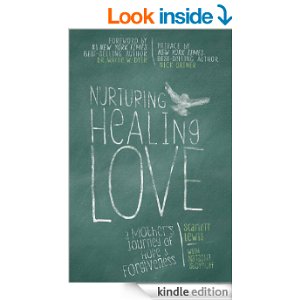November 3, 2015
Sanctioned fake Amazon reviews by gun enthusiasts savage book by Sandy Hook mom
by Mark Krotov
If you search this blog’s archives, you’ll find a number of references to Tuscan Whole Milk. This is not because the contributors to MobyLives have a particular affinity for Tuscan Dairy Farms, of Roebling, NJ (though some of them might). It’s because nearly a decade ago, a gallon container of Tuscan Whole Milk inspired a beautiful meme involving that most un-beautiful of mega-corporations, Amazon.
In the summer of 2006, two young Daytona Beachians (Beachites? Beachers?) began to post absurd, fake reviews of the milk in question to the product’s Amazon page. As Tom Zeller Jr. wrote in the New York Times in 2006:
They then posted images of their comments, along with a call for followers and a pulsating back beat, at ytmnd.com, a site that breeds send-ups of pop culture. (The pair’s page is at awesomemilk.ytmnd.com.)
The response was good, but a link from the blog Boing Boing on Friday blew the lid off.
The Tuscan Whole Milk product page continues to attract new contributions to this day. And while the meme is, indeed, a hilarious prank—and an example of the internet’s collective capacity for silliness—it’s also undeniably a symbol of Amazon’s rather problematic stance on customer reviews.
Last week, the Seattle Times’s Jay Greene wrote about a far less innocuous symbol of this same stance. In his fascinating article, Greene—the newspaper’s business reporter—details the vicious, abusive reviews the writer Scarlett Lewis has received for her book Nurturing Healing Love: A Mother’s Journey of Hope and Forgiveness. Lewis is the mother of a six-year-old boy murdered at Sandy Hook Elementary School in 2012, and the Amazon comments stem from this fact:
The rage in those reviews is fueled by the conspiracy theory that the Sandy Hook shootings were a hoax, perpetuated by the government to push for tougher gun-control laws. Several were posted after a YouTube user who goes by the handle “RadMc02” uploaded a video on Oct. 18 encouraging viewers to “Truth Bomb the Shit Out of Amazon Reviews!”
As Greene shows—and as anyone who has tried to read the reviews of a hot new book by a left-leaning writer (or Democratic candidate for just about any kind of public office) can attest—Amazon reviews have become a forum for activists and bullies of various stripes do battle. And like the Tuscan Whole Milk pranksters, these activists and bullies make use of a loophole so big that it can’t really be called a loophole: Amazon accepts customer reviews from anyone—not just from people who have purchased a product.
This has been Amazon policy all along. Greene spoke to company spokesman Tom Cook, who gave him the boilerplate:
“All authentic reviews, whether the reviewer bought the product on Amazon or not, are valuable to customers, helping them make informed buying decisions every day,” Amazon spokesman Tom Cook wrote in reply to questions about its review policy. He declined to address questions about specific reviews.
The key detail in Cook’s reply, of course, is the rather strained reading of the word “authentic.” Of the seventy-nine one-star reviews for Lewis’s book I read (by reviewers with names like “AmazonPrime VIP user, confirmed status”), I couldn’t find a single one that wasn’t self-evidently the work of a Sandy Hook conspiracy theorist who hadn’t read the book. They’re all basically alike, and all disgusting.
Surely if I can see it, Amazon’s algorithms can see it. But that’s not the point. As Greene says, “Amazon doesn’t view coordinated campaigns to flood its review system with negative comments as abuse.” Which seems, on its face, ridiculous, until you realize that per Amazon—that is, per Jeff Bezos, who said the following in 2003—even negative reviews “[help] customers make better purchase decisions [that] ultimately [pay] off for the company.”
In other words, Amazon could easily limit its reviews to verified purchasers, and thus keep all the nasty, disingenuous content where it belongs. (Mostly in YouTube comments.) But even though it has now filed two different lawsuits against paid reviewers (we wrote about the first suit in April), it won’t go after all the unpaid trolls who do the same thing.
Which, again, seems more than acceptable in the case of an innocuous gallon of milk. But it also seems wholly irresponsible—if not dangerous—in the case of Scarlett Lewis, and the many writers like her who find themselves targeted by anonymous bullies.
Mark Krotov is senior editor at Melville House.

